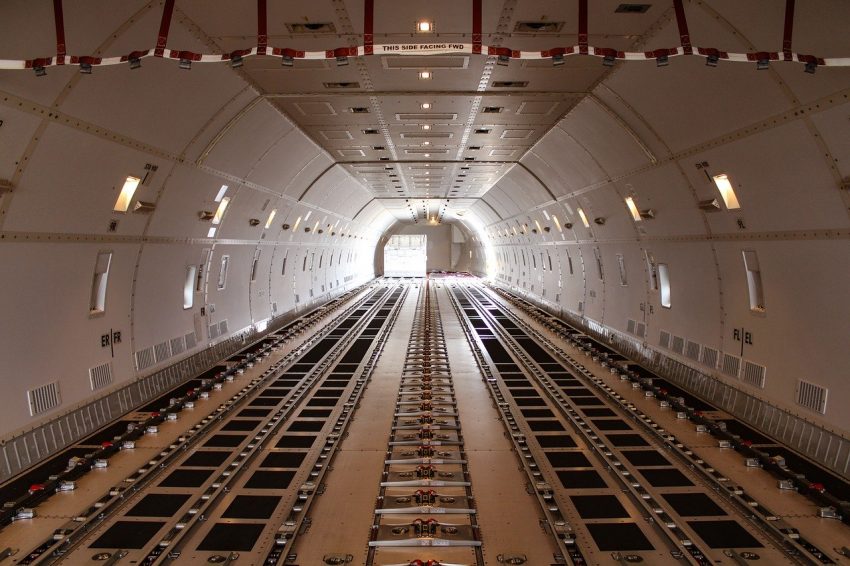Air cargo is facing difficult times despite the recent increase of cargo operations. Over the last few years, the number of cargo flights at Schiphol were reduced by 20%, while the cargo business at Belgium airports increased. Will there be a sustainable future for air cargo in the Netherlands? Or will Belgium take up the mantle as the regional distribution hub?
[blockquote text=”Now is the time to reset and set new policies for cargo” text_color=”#004361″ show_quote_icon=”yes”][vc_separator type=’transparent’ position=’center’ color=” thickness=’5′ up=” down=”]
Due to Covid-19 air transport has reduced tremendously all over the world, and in the Netherlands the situation is no different. Even though the number of cargo flights have increased, the total freight volume has decreased due to a significant part of the cargo normally being carried in the belly of commercial passenger aircraft. To circumvent this decrease in capacity, over 1,000 passenger aircraft are transformed into cargo aircraft or are used as cargo aircraft with supplies bound on aircraft seats.
Cargo keeps the aviation world running
Cargo has proven its vital role during the Covid-19 pandemic. Millions of face masks and other medical supplies need to be distributed globally. Proactivity and flexibility for these supplies were key in order to fight the virus. Liege Airport has been selected by the World Health Organisation (WHO), the UN’s health agency, and World Food Programme (WFP) to play a crucial role in moving critical supplies across the world to tackle the Covid-19 pandemic. But air cargo isn’t just important during this crisis, it will enable the passenger market to be more profitable during the transition phase. To take advantage of this, airlines may expand their passenger route network in line with their expanded cargo operations. Furthermore, it is expected that the demand for cargo will increase faster than the recovery of passenger operations, resulting in an increase of full-freighter movements.
The problem air cargo ‘was’ facing at Schiphol Airport
In recent years the number of air cargo flights at Schiphol Airport were reduced, predominantly due to the scarcity at Schiphol and freighters not being able to meet the ‘use-it-or-lose-it’ requirements. With the current situation, there are enough airport slots available in the slot pool to be used this season, but those slots will not necessarily create historic rights for the next season. The Dutch government approved a local rule benefiting the cargo sector, which is now suspended for the current summer season. This rule states that 25% of the slots available from the slot pool will be reserved for cargo operations. However, the slots that will be available for cargo may not be eligible for historic rights. In addition, in order to be allowed to expand business between airports, there must be bilateral agreements between those two countries. This heavily depends on both Governments.
Now is the time to define the new goals for air cargo
The transport and logistics sector is a driving force behind the success of The Netherlands. Transport takes place on sea, by road, and in the air. The Ministry of Infrastructure and Water management just published their concept Aviation Vision in the Netherlands 2020-2050 This includes the urge for air cargo. However, there is currently no policy or solution to sustainably overcome the shortage of airport slots for cargo in the near future. A new policy for air cargo – and cargo in general – is crucial. This policy, as part of the Aviation Vision 2020-2050, will enable the Schiphol Airport and Maastricht Aachen Airport to maintain and grow the air cargo sector in the Netherlands. Otherwise, Belgium will take over the Netherlands’ position as regional distribution hub.
About To70. To70 is one of the world’s leading aviation consultancies, founded in the Netherlands with offices in Europe, Australia, Asia, and Latin America. To70 believes that society’s growing demand for transport and mobility can be met in a safe, efficient, environmentally friendly and economically viable manner. To achieve this, policy and business decisions have to be based on objective information. With our diverse team of specialists and generalists to70 provides pragmatic solutions and expert advice, based on high-quality data-driven analyses. For more information, please refer to www.to70.com.


